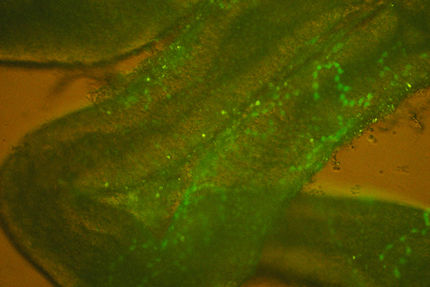Stem Cell Research: What Progress Has Been Made, What Is Its Potential?
The use of stem cells for research and their possible application in the treatment of disease are hotly debated topics. In a special issue of Translational Research an international group of medical experts presents an in-depth and balanced view of the rapidly evolving field of stem cell research and considers the potential of harnessing stem cells for therapy of human diseases including cardiovascular diseases, renal failure, neurologic disorders, gastrointestinal diseases, pulmonary diseases, neoplastic diseases, and type 1 diabetes mellitus.
Personalized cell therapies for treating and curing human diseases are the ultimate goal of most stem cell-based research. But apart from the scientific and technical challenges, there are serious ethical concerns, including issues of privacy, consent and withdrawal of consent for the use of unfertilized eggs and embryos. "Publication of this special issue could not have been more timely, given the recent federal district court injunction against federal support for human embryonic stem cell research," said Dr. Jeffrey Laurence, M.D., Professor of Medicine at Weill Cornell Medical College and Editor in Chief of Translational Research. "This court order stops all pending federal grants and contracts, as well as their peer review, suspending over 20 major research programs and over $50 million in federal funding for them," he noted. As Dr. Francis Collins, NIH director, stated, "This decision has the potential to do serious damage to one of the most promising areas of biomedical research, just at the time when we were really gaining momentum."
Through a series of authoritative articles authors highlight basic and clinical research using human embryonic and adult stem cells. Common themes include preclinical evidence supporting the potential therapeutic use of stem cells for acute and chronic diseases, the challenges in translating the preclinical work to clinical applications, as well as the results of several randomized clinical trials. Authors stress that considerable preclinical work is needed to test the potential of these approaches for translation to the clinical setting.
In considering the potential for clinical applications, some common challenges and questions persist. The issue focuses on critical questions such as whether the use of any stem cell population will increase the risk of cancer in the recipient and whether the goal of stem cell therapy is to deliver cells that can function as organ-specific cells.
Writing in a commentary on advances and challenges in translating stem cell therapies for clinical diseases, Michael A. Matthay, MD, Cardiovascular Research Institute, University of California San Francisco, notes that “the progress that has been achieved in the last 30 years in using allogeneic and autologous hematopoietic stem cells for the effective treatment of hematologic malignancies should serve as a model of how clinical applications may yet be achieved with embryonic stem cells, induced pluripotent stem cells, endothelial progenitor cells, and mesenchymal stem cells. Although several challenges exist in translating stem cell therapy to provide effective new treatments for acute and chronic human diseases, the potential for developing effective new cell-based therapies is high.”
Other news from the department science

Get the life science industry in your inbox
By submitting this form you agree that LUMITOS AG will send you the newsletter(s) selected above by email. Your data will not be passed on to third parties. Your data will be stored and processed in accordance with our data protection regulations. LUMITOS may contact you by email for the purpose of advertising or market and opinion surveys. You can revoke your consent at any time without giving reasons to LUMITOS AG, Ernst-Augustin-Str. 2, 12489 Berlin, Germany or by e-mail at revoke@lumitos.com with effect for the future. In addition, each email contains a link to unsubscribe from the corresponding newsletter.





















































